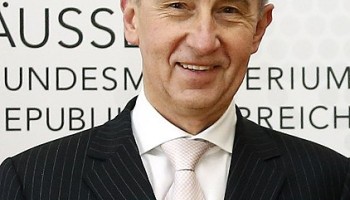Multi-billionaire Andrej Babiš’ ruling party, ANO, ran on a platform of combating systemic corruption, yet a team of MPs of the European Parliament accused him of directing European funds into a company that he owned.
Babiš called the head of the investigation team “insane,” and Czech lawmakers taking part in the probe “traitors.” One of them said he had to call the police because of the growing numbers of death threats he received.
The verbal spat came a day after the Council of Europe’s anti-corruption body, GRECO, released a report concluding that the government’s effort to crack down on corruption was “unsatisfactory.”
GRECO elaborated in a public statement, noting that the Czech government failed to make necessary reforms to confront corruption within its parliament, judiciary, and state prosecutors.
Only one of the 14 recommendations GRECO made in previous reports were fully implemented, it said.
When asked whether the Czech government takes the problems addressed in the report seriously, Gianluca Esposito, executive secretary of GRECO, told OCCRP that “regrettably, progress has been very slow so far.”
While Esposito remains optimistic that GRECO’s recommendations will be implemented as soon as possible, he also said that if “serious non-compliance persists, GRECO could take additional action including, ultimately, the issuing of a public statement at the end of the non-compliance procedure stating that the country concerned is not complying with the international anti-corruption standards.”
David Ondráčka, director of Transparency International Czech Republic, told OCCRP that the government is dragging its feet regarding anti-corruption reforms.
“The result shows that the Czech Republic is limping, that it is proceeding extremely slowly,” he said.
Ondráčka explained that the Public Prosecutor's Office Act has been stalled, the Courts and Judges Act has yet to be adopted, and the issue of amendments to the Conflict of Interest Act is not even on the government’s agenda.
“I think there is a lack of political will to push this faster, so we get such an unflattering result,” he concluded.
Transparency International has faced repeated public attacks from the Czech government, including from Prime Minister Babiš. The organization filed a libel case against him for false statements that was dismissed at the end of last February, and it intends to appeal the verdict.
Babiš has consolidated power in the country since he took office in December of 2017, in part due to his vast media empire. He faces numerous corruption allegations including being accused by his own son of kidnapping him so that he would not give evidence about his business activities in a fraud inquiry.
Over 250,000 protesters demanded the prime minister’s resignation over the allegations last summer in Prague, the county’s capital.
The Czech Republic government has declined and avoided numerous OCCRP requests for comment about the GRECO report.





